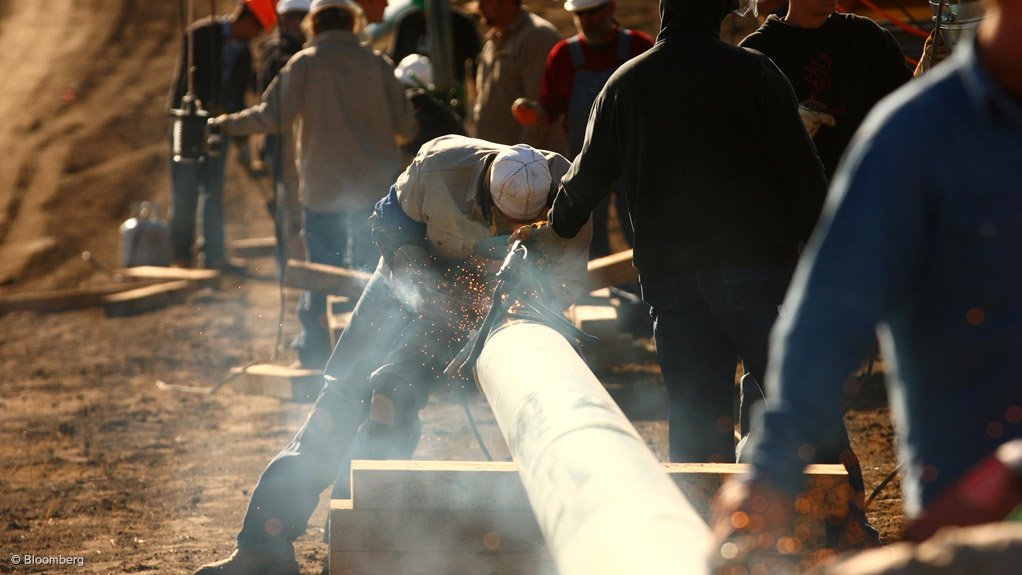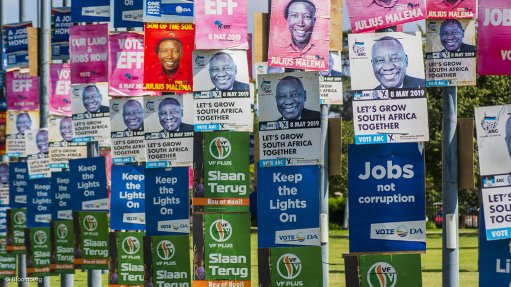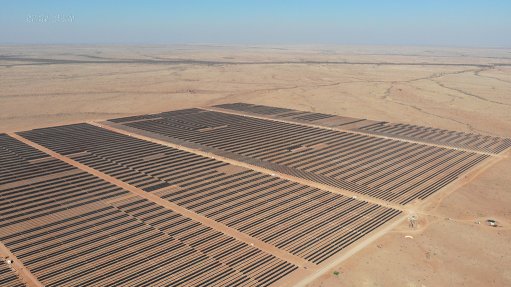Nersa says Burgan terminal key to security of supply
The establishment of a new loading and storage facility at the Port of Cape Town will ensure security of supply as demand for petroleum products in South Africa rises.
This was the view of the National Energy Regulator of South Africa (Nersa), which, despite oil major Chevron’s protests, issued Burgan Cape Terminals with combined licences for the construction and operation of a petroleum storage facility, a petroleum loading facility and a petroleum pipeline in the Western Cape.
Chevron, currently the only refinery in the region, argued that Nersa’s December 2014 decision would stifle local production on the back of an influx of unregulated imports.
The regulator’s Reasons For Decision report, published last week, dismissed Chevron’s objections as an attempt to avert increased competition and pointed out that the demand for petroleum products over the past five years exceeded the local production of petroleum products.
Petroleum products in South Africa were currently sourced from six refineries with a crude oil refining capacity equivalent to 703 000 bbl/d, while South Africa consumed about 27-billion litres of petroleum products a year.
A shortfall of 870-million litres of petrol and 2.7-billion litres of diesel in 2013 and the import of petrol and diesel reaching between 11% and 22% of national demand between 2008 and 2013 indicated that local output was not sufficient to meet demand.
Further, with forecast demand growth of 4.3% and 0.5% a year for diesel and petrol respectively between 2012 and 2020, South Africa would need to deploy additional infrastructure to ensure security of supply.
However, Chevron said there was no need for additional infrastructure in the Western Cape owing to an oversupply in the region, which consumed around 12.6%, or 3.48-billion litres, of total consumption each year.
“The local situation in the Western Cape is quite different from the Durban/inland market supply shortfall and, for this reason, additional infrastructure in [the] Cape Town harbour is not required, especially if it will permit imports of refined product,” Chevron chairperson Nobuzwe Mbuyisa argued.
Durban’s two crude oil refineries successfully competed with one another, while Chevron owned and controlled the only infrastructure capable of importing competing refined products in Cape Town, Nersa explained, accusing the oil producer of seeking “special dispensation of protection” that no other refiners in South Africa enjoyed.
“There is no merit in arguing that because a refinery is situated in a province in which its production exceeds demand, such a refinery should receive special protection from infrastructure that can import product into the province,” the report argued.
Further, Nersa pointed out that the Burgan terminal could play an important role in assisting security of supply when the Chevron refinery was shut down, which, in recent years, increasingly led to a shortage of fuel and required imports and transfers from other refineries in South Africa.
As the bulk of these imports were delivered by ship, Burgan would be able to provide additional storage capacity.
Further, Nersa believed the Burgan facility could provide an option to assist in reducing State-owned power utility Eskom’s diesel shortage, which resulted in load-shedding in November and December when the utility ran out of diesel for its Cape Town-based “peaker plants”.
“Until Eskom’s large new power stations are able to deliver the capacity needed to relieve the shortage of supply, Eskom will remain reliant on the diesel-run peaker plants,” the regulator noted.
Mbuyisa said strategic stockpiling was the solution to Eskom’s erratic and unplanned diesel demand, not increased import capability, as supply from international markets would take up to three weeks to reach Cape Town.
“Therefore, Burgan will not improve this situation,” she said.
Another key aspect of Chevron’s objection to the proposed Burgan facility was that of its import capability in relation to clean fuels, with Nersa maintaining Chevron had “failed to invest” in its own refinery for the production of clean fuels.
“It is difficult for us to accept the regulator’s decision given that their reasons provided have a number of significant flaws. The regulator disregarded vital information we have shared with them, and failed to seek clarifications from us in areas they didn’t understand in order to formulate objective conclusions in its decision,” Mbuyisa stated.
She was referring to the deferment of a clean-fuels policy expected to outline a cost recovery mechanism for local manufacturers last year that opened a gap for importers to bring in product.
Burgan CEO Muziwandile Mseleku said these claims were unfounded, as the companies that rent storage space from Burgan will mainly offtake their products from the Chevron Oil refinery, which is the main supplier of fuel to the Western Cape even if the Burgan terminal is installed.
“This is because the supply of domestic fuel in the market is cheaper than imports and coastal supplies. In case of product shortfall, customers have the option to import product but, importantly, these are subject to the import regulations governing the fuel industry.”
The delayed policy had also left local refiners unable to progress expansion and refurbishment plans to produce a local clean fuels product.
“Nersa fails to understand that oil companies are not able to invest billions of rands in upgrading refineries until a cost recovery mechanism enabling a return on such investments is put in place,” Mbuyisa said, pointing out that the lack of finality and clarity from government on a cost-recovery mechanism and import policy placed the local refinery industry under threat.
The introduction of the cleaner fuels policy with more environment-friendly fuel specifications would require refineries to upgrade their facilities – at a cost of between R20-billion and R40-billion.
Nersa said the fuel manufacturers had requested that government subsidise the investments necessary to upgrade their manufacturing facilities.
The regulator said Sasol would likely need to invest R11.7-billion at the Natref refinery and at Sasol Synfuels, in Secunda, to comply with the latest specifications, leaving between R8.3-billion and R28.3-billion for the remaining four manufacturers – Chevron’s share is likely to be between R2-billion and R7-billion.
“From a competition point of view, Chevron is essentially saying that other investors should be denied the opportunity until it has finished its attempts to procure a subsidy from government and upgrade its refinery and after that other investors may possibly be given an opportunity to compete in the Western Cape market,” Nersa said.
It stood firm on its view that Chevron failed to show “sufficient dependable economic justification” to deny Burgan's application.
“It has demonstrated risk, but that is not the same thing as certainty of consequence. Business is about investors taking risks and being rewarded for them. Denying Burgan a licence on the grounds of risk to Chevron, especially the limited risk that it faces, cannot be justified,” the regulator said.
“We do believe there is a win-win situation in which Chevron and Burgan co-exist and we have provided Nersa with solutions in this regard,” Chevron said.
While Chevron evaluated all its alternatives related to Nersa’s decision with its legal team, the oil producer continued to challenge Burgan’s environmental-impact assessment (EIA) process on the basis that the economic impact of the development would result in the closure of its refinery.
Chevron and Burgan were awaiting a decision by the Western Cape Department of Environment and Development Planning on the EIA.
Comments
Press Office
Announcements
What's On
Subscribe to improve your user experience...
Option 1 (equivalent of R125 a month):
Receive a weekly copy of Creamer Media's Engineering News & Mining Weekly magazine
(print copy for those in South Africa and e-magazine for those outside of South Africa)
Receive daily email newsletters
Access to full search results
Access archive of magazine back copies
Access to Projects in Progress
Access to ONE Research Report of your choice in PDF format
Option 2 (equivalent of R375 a month):
All benefits from Option 1
PLUS
Access to Creamer Media's Research Channel Africa for ALL Research Reports, in PDF format, on various industrial and mining sectors
including Electricity; Water; Energy Transition; Hydrogen; Roads, Rail and Ports; Coal; Gold; Platinum; Battery Metals; etc.
Already a subscriber?
Forgotten your password?
Receive weekly copy of Creamer Media's Engineering News & Mining Weekly magazine (print copy for those in South Africa and e-magazine for those outside of South Africa)
➕
Recieve daily email newsletters
➕
Access to full search results
➕
Access archive of magazine back copies
➕
Access to Projects in Progress
➕
Access to ONE Research Report of your choice in PDF format
RESEARCH CHANNEL AFRICA
R4500 (equivalent of R375 a month)
SUBSCRIBEAll benefits from Option 1
➕
Access to Creamer Media's Research Channel Africa for ALL Research Reports on various industrial and mining sectors, in PDF format, including on:
Electricity
➕
Water
➕
Energy Transition
➕
Hydrogen
➕
Roads, Rail and Ports
➕
Coal
➕
Gold
➕
Platinum
➕
Battery Metals
➕
etc.
Receive all benefits from Option 1 or Option 2 delivered to numerous people at your company
➕
Multiple User names and Passwords for simultaneous log-ins
➕
Intranet integration access to all in your organisation





















